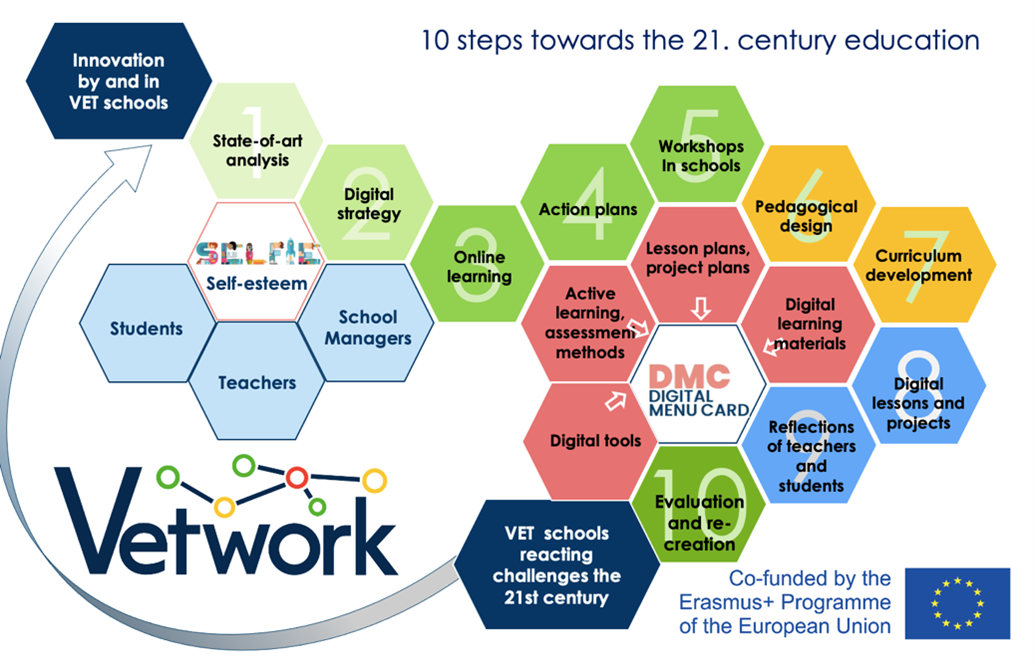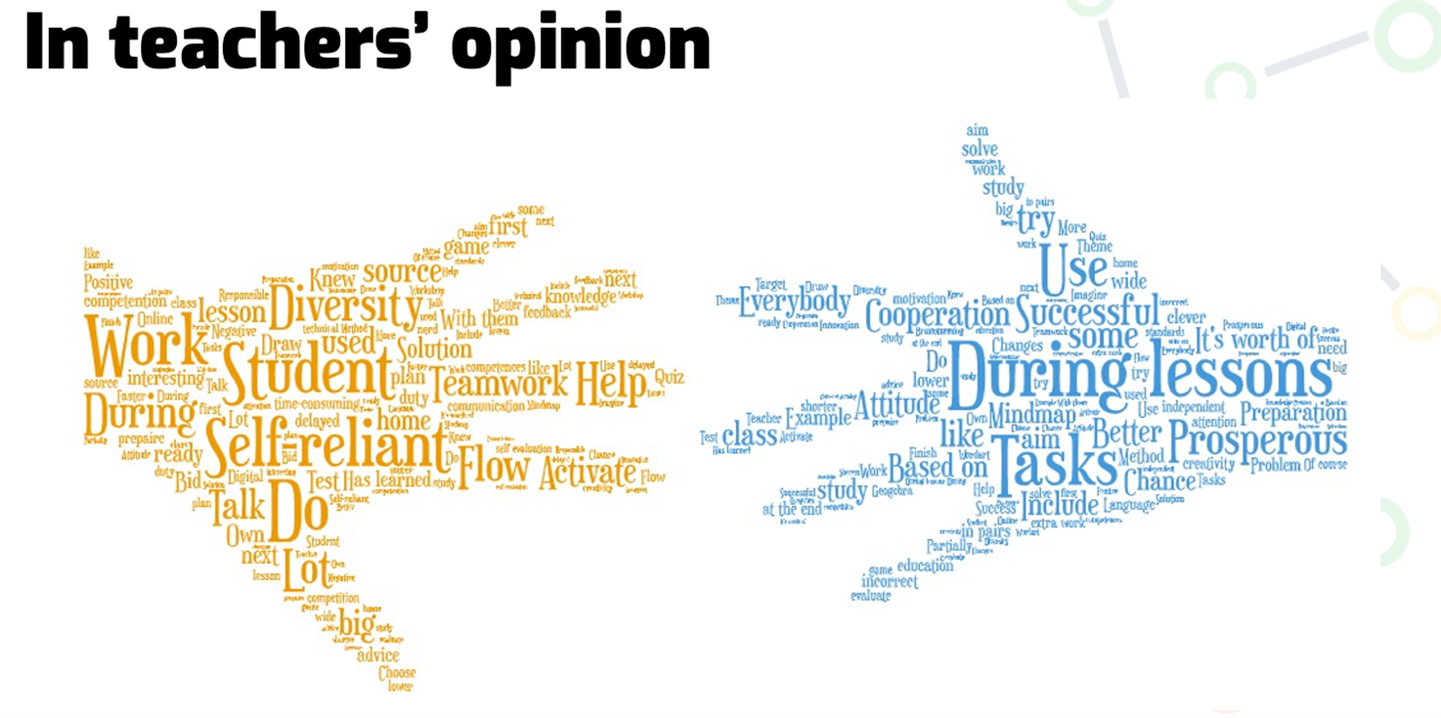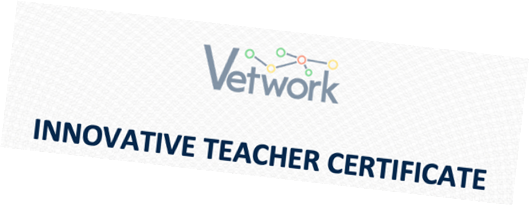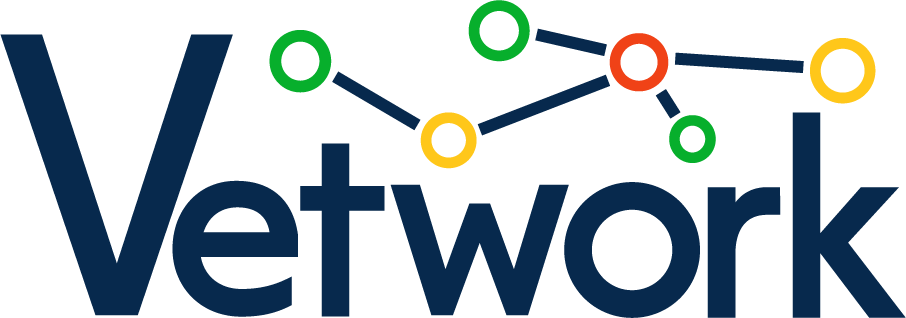The aim of the last working phase was to integrate the experiences and conclusions of first four intellectual outcomes into a comprehensive methodology for reusing by other vocational schools who want to improve the digital education and digital culture by utilizing the inside human resources and creative capacity of the school community.

This activity was led by the university partner of the Consortium (University of Primorska), core partners included Prompt-H Számítástechnikai Oktatási, Kereskedelmi és Szolgáltató Kft., Expanzió Humán Tanácsadó Kft., and Országos Magyar Továbbképző Központ.
The educational experts analyzed and summarized the evaluation reports including the reflections of each stakeholder of the process, school managers, teachers, students, and mentors, and based on them they built up a model, what involves ten steps for mobilizing the school's internal human resources, through a joint initiative of teaching staff and management, to develop a higher level of digital culture and adaptability. The model together with the tools (questionnaires, checklists, etc.), methods (e.g. workshop scripts), and recommended processes were gathered and integrated into a handbook. This handbook serves as a practical, step-by-step guide that can be followed by other experts (consultants, trainers), and vocational schools when developing and implementing a digital pedagogy strategy at an institutional level effectively, satisfying the expectations of all stakeholders, especially the education customers: students and indirectly their parents.
VETWork Certificates
After 10 steps of institutional intervention, the VETWork consortium awarded four levels of certificates to teachers who collaborate in the development of digital education, in recognition of their performance.

Creative work of Dóra Fülöp VET teacher, Szakkay József vocational school (Slovakia)
Level 1: Digital Innovator – for completing successfully the online course, creating action plan for improving own digital competences, joining to workshops, creating lesson plan, piloting with students and reflecting on the results.
Level 2: Digital Mentor – for fulfilling Level 1 and collaborating in content development (21st century teaching methods, OERs or digital tool(s), leading workshops.
Level 3: Digital Change Agent – for fulfilling Level 2 and representing the school management and supporting the work of mentors, ensuring that the changes were implemented and sustained.
Leadership for Digital Education (issued only in Slovenia): for supporting the learning activities of teachers by high level Project Management Organizational Awareness, monitoring achievement of teaching staff and providing progress reports for deadlines.
Results in numbers

- The Consortium issued issued 85 certificates in the 3 countries in Hungarian and English:
- Level 1 – Digital Innovator: 61
- Level 2 – Digital Mentor: 18
- Level 3 – Digital Change Agent: 6
- eBook on the methodology of institutional level intervention for improving the digital education in the vocational schools.
